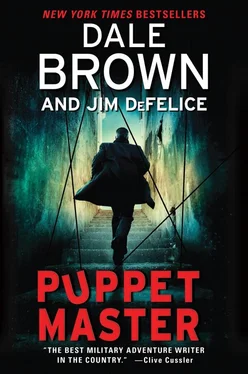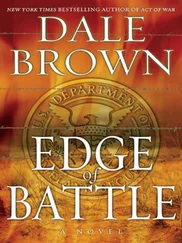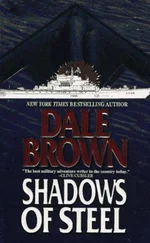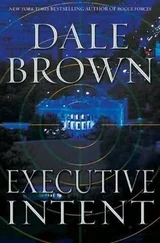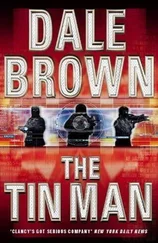Chelsea didn’t answer.
“I imagine it must be hard for you to deal with all the men in your field,” added Joyce after a few moments of silence. “Are there other women where you work?”
“A few.”
Actually, just two dozen, including Massina’s personal assistant. The male-to-female ratio in the technical fields was generally abysmal.
“I work in an elementary school,” said Joyce. “The girls seem more excited about math than the boys at that age. But they peter out.”
“Uh-huh.”
“Hormones.”
“Huh?”
“I think hormones mess a lot of us up. By the time we recover, we’ve missed our chance. Girls need encouragement. When they show aptitude. Was there a key? To get you interested?”
“I just was. In math. And stuff.”
“Only child?”
“How did you know?”
“I just did.” Joyce smiled at her.
“I wish I had stopped him,” Chelsea blurted.
“It wasn’t your fault, hon.”
“I know, but I wish…”
* * *
Jenkins and his boss were joined by a “comfort team,” specialists who worked with the family when an agent went down. Jenkins didn’t know them, but he knew their work — a similar team had met him when his brother was shot.
The night passed slowly, like a crippled man crawling up a long staircase. Finally the surgeon he had met hours earlier came out.
Jenkins sprang to his feet and began walking toward him. His heart began pounding in his chest; he could feel his pulse in his neck, a hard roll on a snare drum.
“He’s still critical,” said the doctor, nodding his head. “We had to take both legs. The next twenty-four hours will be crucial. There’s internal bleeding. Did you know that he had a heart defect?”
“No,” said Jenkins.
“It’s been stressed. There’s a hole — I’m very sorry. He needs a transplant, and I don’t know.”
“Of his legs?”
“No, the heart. Without it, and soon, very soon, he’s gone.”
Boston — early the next morning
Chelsea didn’t sleep. She tried, stripping off her pants and curling beneath the blanket, but the accident kept playing in her head. She kept seeing Johnny Givens’s face in that last moment when the car hit.
As she thought about it now, logically, carefully, she didn’t think that she had seen his face. She’d been too far away, hadn’t she? And in the car, and there hadn’t been much light.
And yet she saw it in her mind, clearly.
She’d done nothing to stop it.
After a while she gave up even pretending that she could sleep. She was sorry that she had left the hospital. How was he?
Maybe dead by now.
She opened her cell phone’s list of calls and found the number for the FBI agent, Jenkins.
“How is he?” she asked when he answered.
“Chelsea?”
“Is he out of surgery?”
“You mean Johnny?”
“Who else would I be talking about?” she demanded. “Damn — is he… all right?”
Jenkins’s pause told her more than she wanted to know.
“He’s alive. Barely.” The FBI agent ran down a list of injuries that sounded like the index to a medical encyclopedia. Johnny Givens had already lost two legs; he needed a liver and a new heart — those were the highlights.
“You need to get him to a better hospital,” blurted Chelsea.
“Better care?”
“We have… Lou has connections. He can help.”
“Mr. Massina has already done a lot for us and—”
“I’ll call you back,” she told him quickly. “I’ll call you back.”
Massina stared at the FBI agent for a good sixty seconds, not believing at all what he had just been told.
“Mr. Jenkins,” he said finally. “You’re telling me, in so many words, that after all this work, you’re not going to prosecute these bastards?”
The word bastards stuck in his mouth; it was very unlike Louis Massina to curse, even mildly, even in private. But there was no other word to describe them.
“These men are responsible for crippling your agent, your friend,” added Massina when Jenkins didn’t answer. “You’re going to let them go.”
“It wasn’t actually them, as far as we know. The thieves — it’s different people, we think.”
“You’re still letting these people go.”
“That’s not — that’s not exactly what’s happening here,” said Jenkins. He had the face of a man who’d been punched in the stomach without warning and for no good reason. And yet Massina felt sure he must have expected some reaction from Massina along these lines. How could he not?
“Maybe you should explain what is happening, then,” said Massina. He rose from his desk chair, needing to exercise the adrenaline that was suddenly surging through his body.
“I’m afraid I can’t go into the details,” said Jenkins. His voice was shaking. “I — there is another agency involved and, it’s — I know it doesn’t make any sense.”
“Well, make it make sense then. You want them to go without any justice?”
“No,” said Jenkins quickly. “No — I have to go. I’m sorry. I’m very sorry.”
Boston — Tuesday morning
Convinced by Chelsea to help save the FBI agent’s life, Louis Massina approached the problem the way he approached any problem: all-out. All of his resources were devoted to the young man. Not only did that mean all of Smart Metal’s technical expertise and devices; it also meant all of Massina’s considerable contacts. Grace Sisters’ Hospital and its experimental operating suite were put at Johnny Givens’s disposal, as were its doctors. Drugs that would speed his recovery as well as sustain him through the heart operations — drugs that couldn’t be bought at any price — were rushed to the hospital, with the FDA’s blessing. Sister Rose Marie saw personally to the young man’s care, and even Father O’Gorman, one of the hospital’s crusty chaplains, took an interest in the case.
The latter was doubly unusual, in that Johnny Givens was a confirmed Baptist.
It was O’Gorman whom Chelsea met outside the ICU when she came to check on the man she’d helped so much to save. O’Gorman sighed and shook his head when he saw her. Chelsea was Catholic, but to O’Gorman she represented the grievous future versus the blessed past. For despite working in one of the world’s most advanced medical centers, O’Gorman regarded technology as something close to the Devil’s plaything.
If not worse.
“Hello, Father,” said Chelsea.
O’Gorman shook his head and pointed at Chelsea’s iPhone, which she was just turning off.
“I hope you’re not thinking of taking a selfie,” grumbled the priest.
“I’m just turning the ringer off.” Chelsea slipped the phone into her pocket. “I’m surprised, Father.”
“What?”
“That you actually know what a selfie is.”
“Vanity, young lady, is one of the seven deadly sins. That I know. Book of Proverbs 6:16–19. King Solomon. The phrase is a ‘proud look.’ And as—”
“How is that vanity?” interrupted Chelsea.
“Just when I thought there was hope,” grumbled the priest, stalking away.
“It’s vanity because it means to be too proud, which is when God trips us up,” said Sister Rose, turning the corner. “But I don’t think it’s a sin you have to worry about, dear,” she added kindly. “It’s not wrong to be aware of the gifts God has bestowed on us. As long as we put them to their best use.”
“I try.”
“You’re here for our patient.” The nun was practically the only adult Chelsea knew in Boston whom she could regard eye to eye without raising her head. “Come.”
Читать дальше
